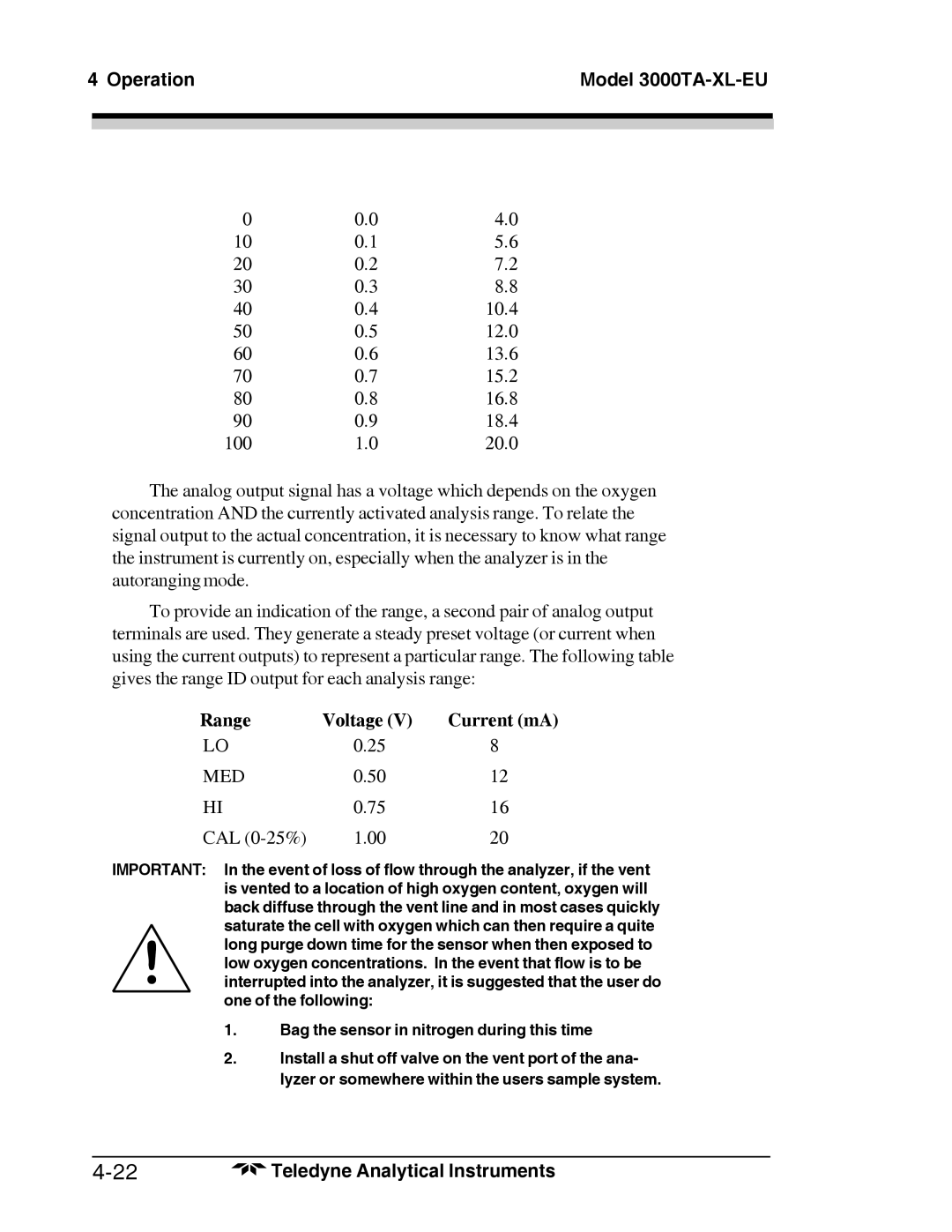
4 Operation | Model | |
|
|
|
|
|
|
|
|
|
0 | 0.0 | 4.0 |
10 | 0.1 | 5.6 |
20 | 0.2 | 7.2 |
30 | 0.3 | 8.8 |
40 | 0.4 | 10.4 |
50 | 0.5 | 12.0 |
60 | 0.6 | 13.6 |
70 | 0.7 | 15.2 |
80 | 0.8 | 16.8 |
90 | 0.9 | 18.4 |
100 | 1.0 | 20.0 |
The analog output signal has a voltage which depends on the oxygen concentration AND the currently activated analysis range. To relate the signal output to the actual concentration, it is necessary to know what range the instrument is currently on, especially when the analyzer is in the autoranging mode.
To provide an indication of the range, a second pair of analog output terminals are used. They generate a steady preset voltage (or current when using the current outputs) to represent a particular range. The following table gives the range ID output for each analysis range:
Range | Voltage (V) | Current (mA) |
LO | 0.25 | 8 |
MED | 0.50 | 12 |
HI | 0.75 | 16 |
CAL | 1.00 | 20 |
IMPORTANT: In the event of loss of flow through the analyzer, if the vent is vented to a location of high oxygen content, oxygen will back diffuse through the vent line and in most cases quickly saturate the cell with oxygen which can then require a quite long purge down time for the sensor when then exposed to low oxygen concentrations. In the event that flow is to be interrupted into the analyzer, it is suggested that the user do one of the following:
1.Bag the sensor in nitrogen during this time
2.Install a shut off valve on the vent port of the ana- lyzer or somewhere within the users sample system.
Teledyne Analytical Instruments |
